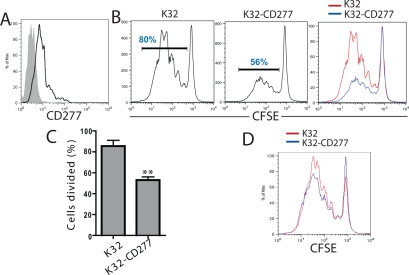Figure 2: CD277 inhibits TCR-mediated human T cell proliferation.
(A) FACS analysis of CD277 expression by mock-transduced K32 (aAPCs) cells (solid) and K32 cells stably infected with a retroviral construct encoding CD277 (open). (B) Untransduced or CD277-expressing K32 cells were loaded with anti-CD3 agonistic antibodies (OKT3; 100 ng/ml) and cells were then co-cultured (1:10) with CFSE-labeled human peripheral blood T cells. The percentage of proliferating T cells was analyzed by FACS after five days of proliferation. Data are representative of five independent experiments with similar results. (C) Representative FACS analysis of the data shown in B. **P<0.05 (Mann-Whitney). (D) CD28 costimulation alleviates CD277-mediated suppression. K32 cells were loaded with anti-CD3 and anti-CD28 agonistic antibodies (25 ng) and cells were cocultured with human T cells, as described above. CFSE dilution was evaluated by FACS five days later. Data are representative of four independent experiments with similar results

